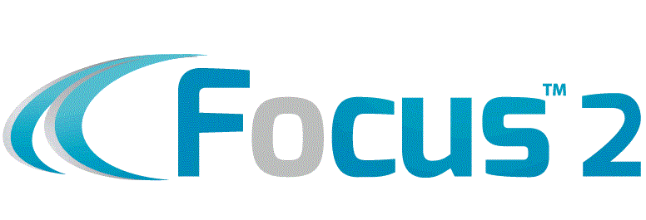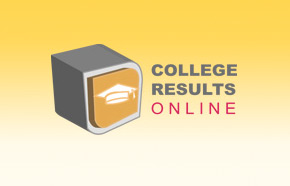COD: Something’s fishy!
Cancellation of Debt or COD for short.
Due to the state of the economy over the last year, it is imperative to know and understand how cancellation of debt may affect the ability to get financial aid.
Can I get my student loans cancelled? Yes and no. See #5 below.
If a cancelled debt is a taxable event and counts as income, it may throw your AGI through the roof and disqualify you for any need based aid. (One of the questions on the FAFSA asks what your AGI is.)
In the tax world, COD is short for "cancellation of debt." If that phrase doesn't sound familiar, you'd better read on, particularly given the state of the economy. Like it or not, when a debt you owe is canceled or discharged, in many cases the tax code treats the wiped out debt as cash income to you. If you owe $500,000 to the bank, but the bank forgives it, it's as if the bank just handed you $500,000 and Uncle Sam wants his cut.
Yes, there are other types of phantom income that incur a tax despite the fact that you've gotten no cash. The good news is that there are exceptions and exclusions that may keep you from having to write a check to the IRS. So you're not caught off guard, here are 10 things you should know about COD income.
1. Loans forgiven as gifts aren't taxable.
If your debt is canceled by a private lender--say a relative or friend--and the cancellation is intended as a gift, there is no income to you. While it's not income to you, if the lender forgives more than $13,000 in a year (the gift tax annual exclusion), it may count against his or her own $1 million lifetime exemption from the gift tax, so it's often best for these loans to be forgiven a little at a time. A debt canceled by a private lender's will, upon his death, isn't income to you either.
2. There's an exception for the mortgage on your home.
In 2007, in response to the mortgage crisis, Congress exempted up to
$2 million (per couple) in mortgage debt on a principal home, forgiven from 2007 through 2012, from income. This exemption applies if:
--You restructure "acquisition" debt on a principal residence--meaning debt you used to buy or improve a principal residence. If you used a home equity loan to buy a boat or play the stock market and the lender forgives that debt, it's not covered by this provision. (But if you're bankrupt or insolvent, it still might not be income. See Points 3 and 4 below)
--You lose your principal residence in a foreclosure (but be careful:
You may have income to the extent the canceled debt does not relate to the purchase or improvement of your principal residence), or
--You sell your principal residence in a short sale, where the sales proceeds are less than you owe and the lender writes off the balance.
Not surprisingly, if your lender writes off some of your mortgage, you will have to reduce your basis in the residence by the amount of discharged debt not counted as income to you. Note that this special relief for forgiven mortgages isn't automatic; to take advantage of it you must file IRS Form 982, with the intimidating title, "Reduction Of Tax Attributes Due to Discharge of Indebtedness (and Section 1082 Basis Adjustment)." Get professional help.
3. Bankruptcy discharges aren't taxable.
If your debt is discharged when you're in bankruptcy, as part of a court-approved bankruptcy plan, it isn't income to you. Again, the amount of the discharged debt goes to reduce certain tax attributes, such as net operating losses or the basis of property. Once again, the rules are complicated and Form 982 is required.
4. If you're insolvent, you get a pass.
Even if you are not in bankruptcy, if you are "insolvent" when your debt is discharged, there is no tax. Insolvency is a simple test meaning your liabilities exceed your assets. To escape tax, your liabilities must exceed your assets by more than the amount of the debt discharged. Say you have $1,000 in assets and $2,000 in liabilities, so you're underwater to the tune of $1,000. If your bank forgives a $500 debt, it's not income because the amount forgiven is less than the amount of your insolvency.
5. Certain forgiven student loans aren't income.
Another exception protects forgiveness of certain student loans. The student or former student escapes the tax hit if the loan is forgiven under a provision specifying that all or part of the debt is discharged if the individual works for a certain period of time in certain fields for a class of employers. So doctors, nurses and teachers agreeing to serve in rural or low-income areas in exchange for cancellation of their student loans won't have income from the cancellation.
Then there's the new federal income contingent student loan repayment program. If you work in the private sector, you must pay a certain percentage of your income for 25 years and any loan balance left after that is forgiven and counted as income to you. But if you work for the government, the balance is forgiven after 10 years of payment and doesn't count as income.
6. There's an exception for deductible interest.
There is no income from cancellation of deductible debt. That means if a lender cancels home mortgage interest (interest only, not the principal of the debt), and that interest could have been claimed as an itemized deduction on Schedule A to your Form 1040, there is no income.
7. You must account for Form 1099-Cs
No one likes IRS Forms 1099, but they're a fact of life. Any government agency, financial institution or credit union forgiving a debt of $600 or more has to issue a Form 1099-C to you and send one to the IRS too. If you receive one and disagree with the amount shown, write the lender requesting that it issue a corrected Form 1099-C showing the proper amount of canceled debt. If you believe the canceled debt isn't income to you because you're insolvent or for any other reason, don't ignore the 1099-C. Instead, fill out Form 982 explaining why it isn't taxable.
8. A price adjustment isn't income.
There is no income if an individual purchases property and the seller later reduces the price of the property. The purchaser's basis in the property, however, is reduced by the amount of the adjustment. These days this exception can be particularly important. Say you bought a rental unit five years ago for $500,000 from the bank, and still owe the bank $400,000. The unit is now worth only $350,000. The bank agrees to reduce the debt by $50,000. If this is just debt discharge, it's COD income. But if it is written as an adjustment to the purchase price, it's not.
9. Certain farm and real business property debt gets special treatment.
Even if you are solvent, there are special rules for certain qualified farm debt. These rules apply only after you already apply the insolvency and bankruptcy rules. Similarly, a discharge of debt incurred to acquire or construct certain property used in a trade or business ("qualified real property business debt") won't trigger income (subject to limits). In both cases, the amount of forgiven debt excluded from gross income reduces your basis in property.
10. You can sometimes delay the tax hit.
Congress created yet another limited time rule allowing an individual or corporate taxpayer to delay the normal tax hit from reacquiring its own debt at a discount. The delay only applies if the debt was issued in connection with a trade or business and reacquired in 2009 or 2010.
Debt that qualifies can be recognized over five years, beginning in 2014.
The bottom line is that COD income has always been a confusing and complicated issue. But in this economy, with the special exceptions Congress has made, it's even more so.
Student Loan Forgiveness Programs
While all this is good and dandy, part of the key is graduating with the least amount of student loans. Check out one of our free workshops for info on how to graduate college without going broke!
There are several student loan forgiveness programs available. These programs will reduce or eliminate your student loan debt in exchange for years of service. You should not choose a career because you hope to have your student loan debt forgiven. It is more important to select a career based on your interests, skills, and personality. However, if you might qualify for any of the following programs, you should research and apply for that program.
Teacher Loan Forgiveness: If you teach full-time in a low-income school or certain teacher-shortage subject areas, you may be eligible to have a portion of your Stafford or Perkins loans forgiven for each year of service. To learn more, visit http://studentaid.ed.gov. also check out https://www.tcli.ed.gov/CBSWebApp/tcli/TCLIPubSchoolSearch.jsp
Child-care Provider Loan Forgiveness: If you work full-time in certain child care facilities that serve low-income families and meet other qualifications, you may be eligible to have up to 100 percent of your student loans forgiven. This federal program is not currently accepting new applications. For information on the program and guidelines visit the loan discharge section of www.studentaid.ed.gov.
Lawyer Loan Forgiveness: Some law schools offer loan repayment programs to graduates who serve in the public interest or work for nonprofit groups. Visit your school’s financial aid office to determine if there is a school sponsored loan repayment assistance program (LRAP) or visit the National Association for Public Interest Law for more information at http://www.equaljusticeworks.org/finance. For information on Arizona loan repayment programs visit http://www.azflse.org.
Doctor Loan Forgiveness: If you agree to practice in communities where there is a shortage of health professionals, you may be eligible to have a portion of your student loans forgiven. The National Health Service Corps, under the Department of Education, will pay up to $50,000 for two years of service, based on your loan balance. To locate your state program visit http://bhpr.hrsa.gov. For information on the Arizona loan repayment program visit http://www.azdhs.gov.
Peace Corps: Offers a loan repayment program that reduces your outstanding debt on Perkins loans by a specific percentage for each year of service. You may also be eligible for a deferment of all federal loans while you serve in the Peace Corps. Visit www.peacecorps.gov to learn more.
Americorps: Offers a student loan payment program of up to $4,725.00 for each term of service. The award amount varies based on the number of service hours. For more information visit http://www.americorps.org/
Armed Forces: Offers loan payment programs for people who enlist in the Army, Navy, or Air Force after college. For each year of military service, a percentage of your student loan balance is paid. Visit www.military.com/resources to learn more on student loan repayment programs.
If you did not find a program listed here, you should also search the Internet for other programs offered through specific employers, state agencies, and the federal government. One federal resource is fedmoney.org, a free search engine for federal grants and loan programs.
Important Note: If you hope to have your student loans forgiven, do not consolidate your Perkins loan. If consolidated, Perkins loans become ineligible for loan forgiveness programs. Double check everything BEFORE you implament any plan.
Need help sorting out this whole mess? Contact us we'd love to help.





